RCPath Achievement Awards 2025 winners
To celebrate excellence in pathology practice and promote high standards in pathology education, training and research to deliver the best patient care, we established the RCPath Achievement Awards. These awards complement our existing schemes that celebrate public engagement and research. There are 5 RCPath Achievement Awards – 4 team awards and 1 award for the category of sustainability.
The 2025 Achievement Awards celebrate excellence in pathology service provision through teamwork.
Congratulations to the winners and you can read more about their work below.

RCPath Achievement Awards 2025 – Team awards
Diagnostic Cytology Team – Royal Devon and Exeter Hospital
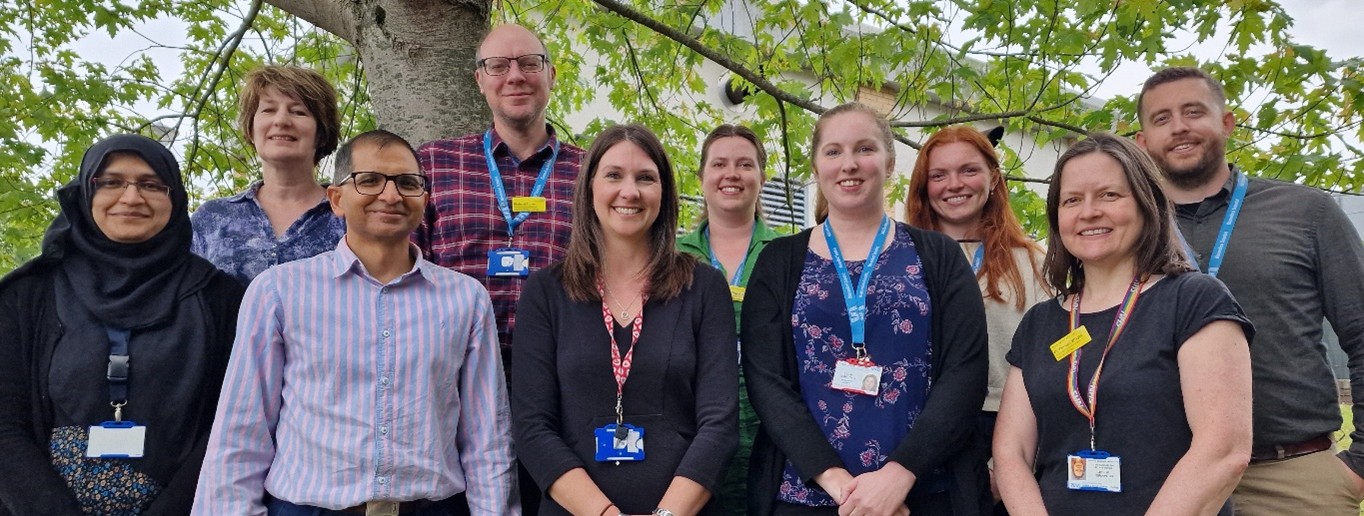
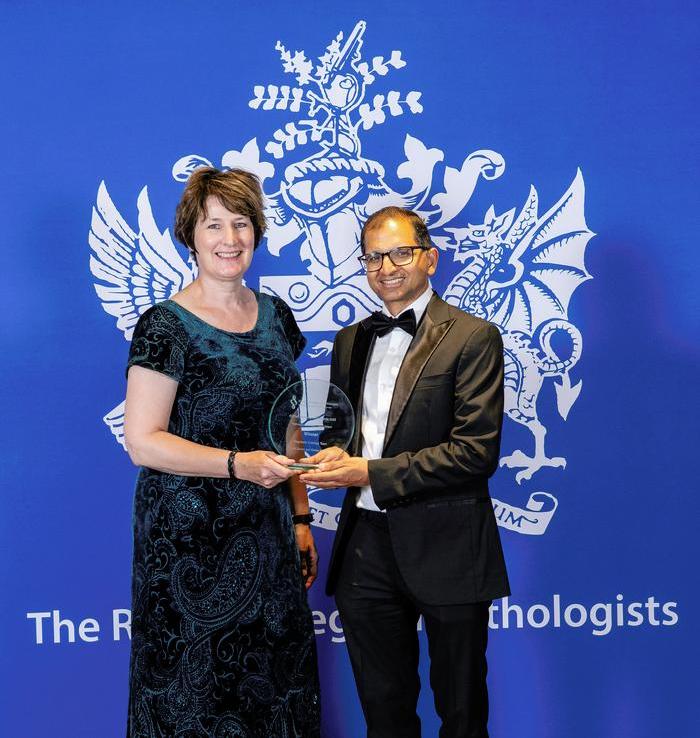
Since the loss of the cervical screening service in 2020, the cytology team at Royal Devon and Exeter Hospital has worked hard to provide and expand the diagnostic service. The staff has extended and enhanced their skills to provide a biomedical scientist-led rapid onsite evaluation (ROSE) service, which has grown from 4 clinics to 8 per week in the last couple of years. This service supports upper GI endoscopic ultrasound (EUS), endoscopic bronchial ultrasound (EBUS) and head and neck clinics. The team has a very ‘let’s do it’ attitude and does not shy away from trying new things.
All the ROSE service users have been very complimentary. These clinics not only provide an excellent patient service, but they have also significantly impacted cancer pathways and been cost-efficient. The ROSE service has been extended to North Devon Hospital, which has remarkably improved the quality of service there.
The team has validated use of fluid samples for lung cancer and melanoma biomarker testing using in-house platform for rapid turnaround of results (this is also UKAS accredited). They are currently researching use of fluids for RNA fusion testing and involved in a multicentre trial for Thyroidprint.
GUSTO Trial Lab Team
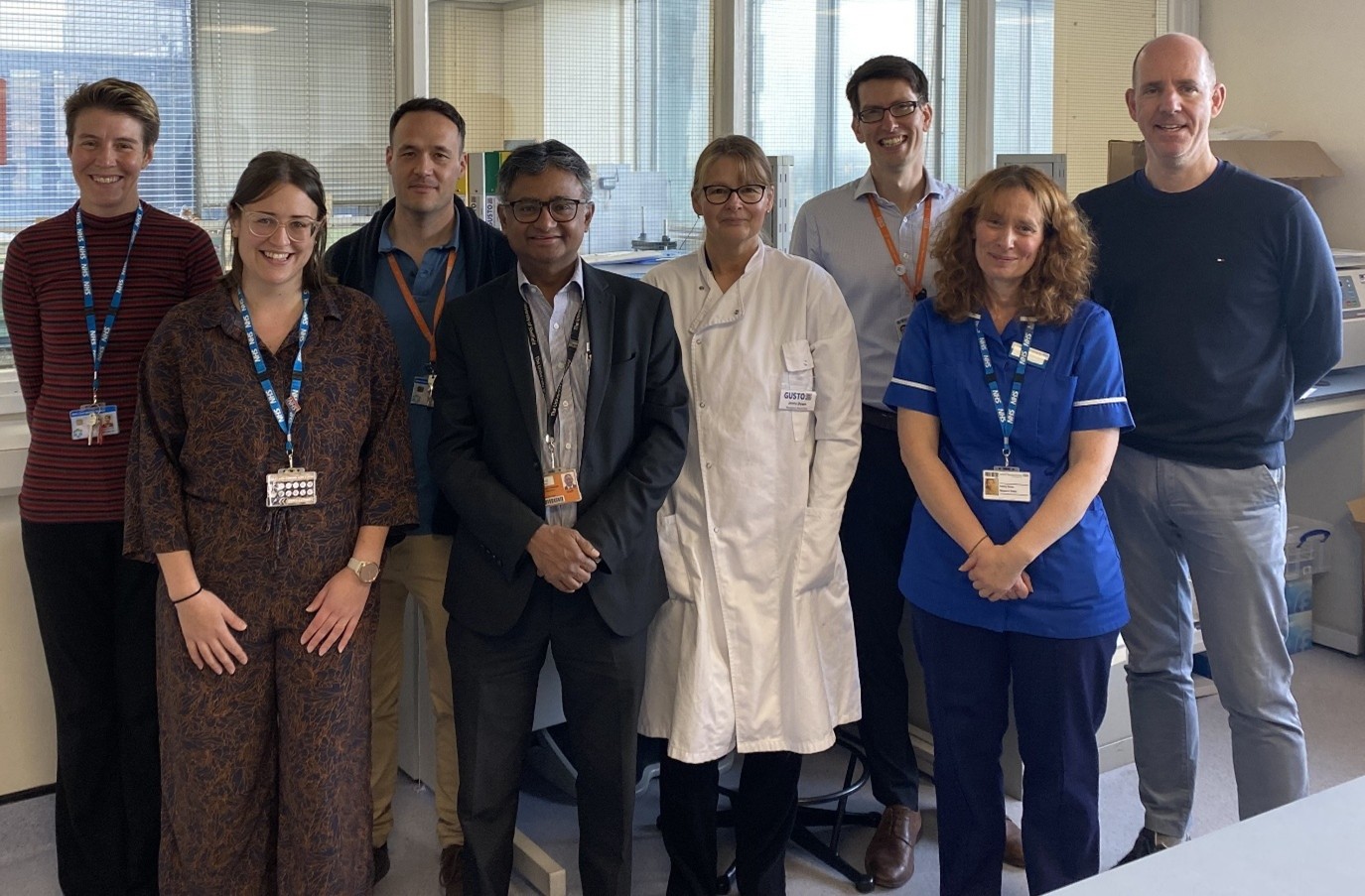
GUSTO Trial Lab Team.
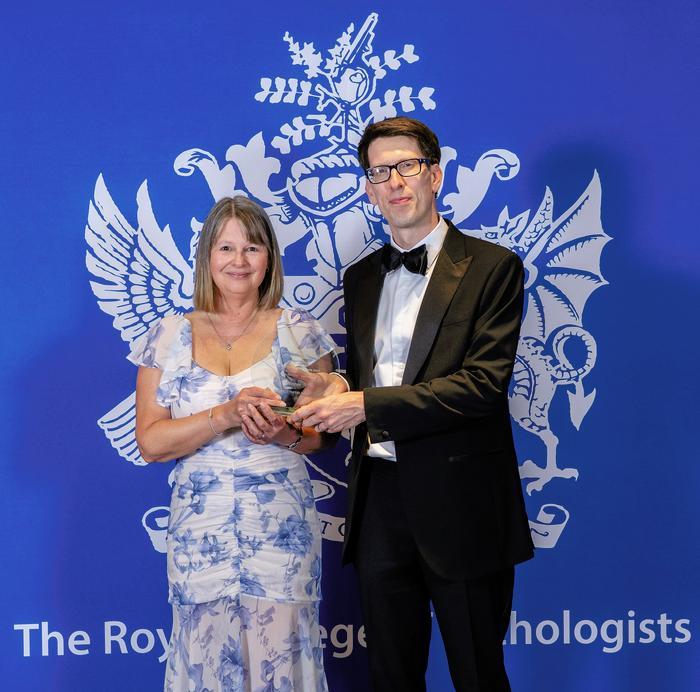
GUSTO (Genotype of Urothelial cancer: Stratified Treatment and Oncological outcomes; funded by the National Institute for Health and Care Research [NIHR] and the Medical Research Council [MRC] Efficacy and Mechanism Evaluation [EME] programme) is the world’s first randomised control trial to use genomic subtyping to guide pre-operative chemo- and immunotherapy in bladder cancer.
The GUSTO laboratory is a collaboration between the University of Sheffield and Sheffield Teaching Hospitals NHS Foundation Trust histopathology department. The trial requires the laboratory to deliver rapid gene expression subtype results to teams across 20 UK centres with a target turnaround time of less than 7 days.
To achieve this, the team has optimised new laboratory processes working with biomedical scientists, pathologists, NHS laboratory management, the University of Sheffield and NHS Research & Development departments, and a commercial partner.
The laboratory team has also established a novel way of working where the bench/ ‘wet’ laboratory work is performed in Sheffield and data is analysed on a dedicated commercial server in the USA. This reduces delays and inefficiencies associated with sending physical samples overseas. The laboratory team also collects translational tissue and blood samples and has secured further research funding from Cancer Research UK, The Pathological Society and the Jean Shanks Foundation.
The GUSTO laboratory is the only centre in the UK offering this test. The laboratory has been processing trial samples for 18 months and achieving high-quality gene expression subtyping results. These results demonstrate how university–NHS partnerships can make cutting-edge diagnostic technologies available to patients within clinical trials.
Less invasive autopsy for perinatal demise – Great Ormond Street Hospital perinatal autopsy imaging service
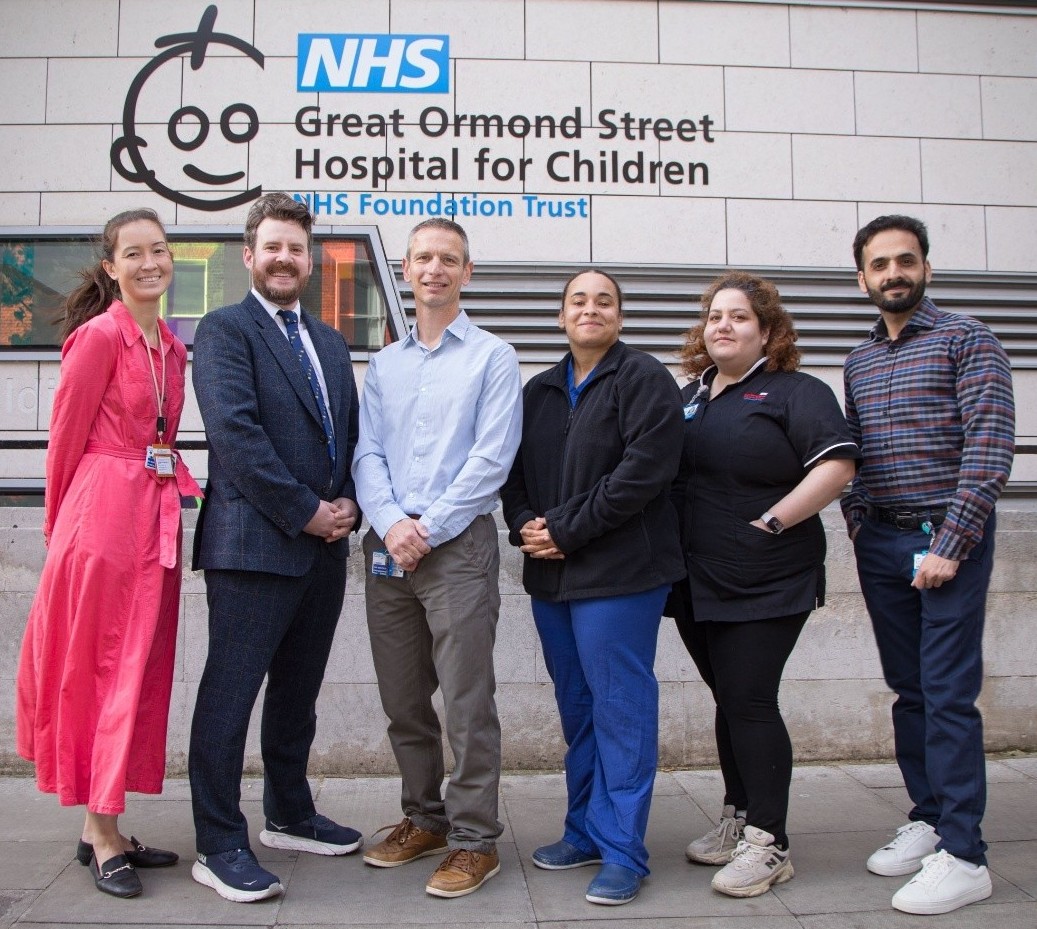
Great Ormond Street Hospital perinatal autopsy imaging service team.
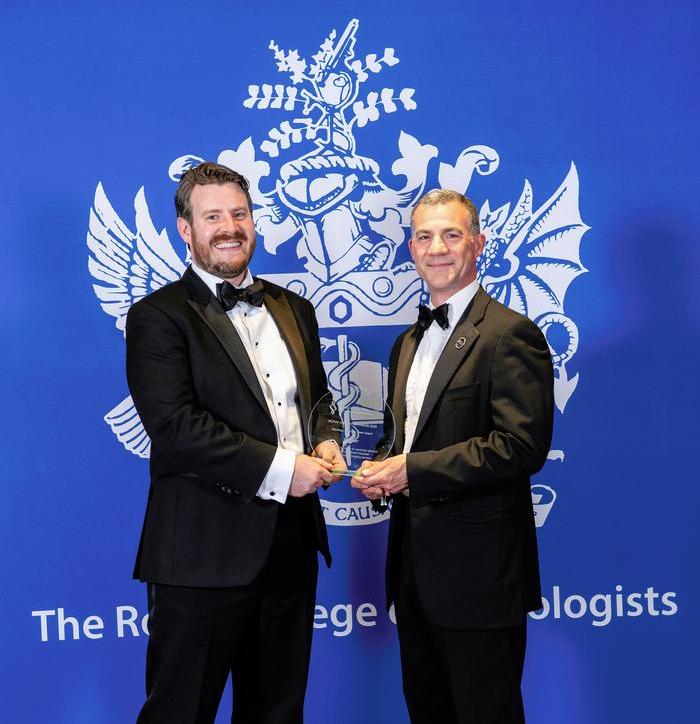
Over the last 10 years, the Great Ormond Street Hospital (GOSH) Autopsy Imaging Service has evolved from a research project to an integrated clinical service. The multiprofessional team of mortuary staff, radiographers, physicists, radiologists and technicians, led by pathology, have designed and optimised imaging techniques to be incorporated into a less-invasive autopsy process.
Not only have they established the utility of medical imaging (MRI, CT, ultrasound), but they have also pioneered novel imaging techniques including micro-CT for fetal autopsy. Offering less-invasive autopsy has broadened the reach of autopsy to 16 centres, with excellence in service provision demonstrated by a high level of acceptance by parents and a reduced turnaround time of 3 weeks.
Almost all perinatal autopsies at GOSH now involve some form of imaging. The team completed their 1,000th micro-CT-based autopsy in 2024. They have also published ‘how to’ guides and diagnostic accuracy rates, to help develop other UK services and widen parental choice.
Great Ormond Street Hospital Metagenomics team
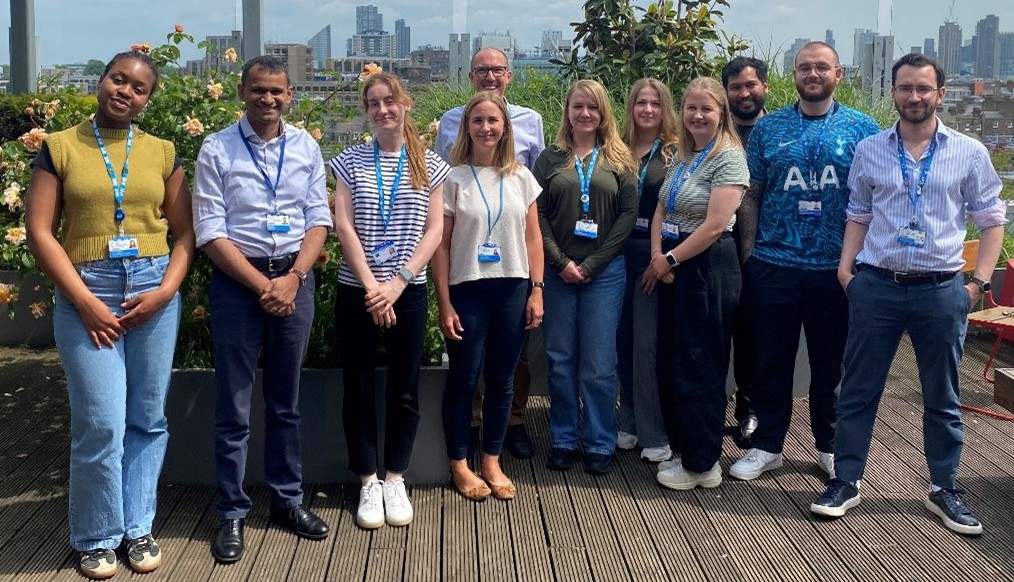
Great Ormond Street Hospital Metagenomics team.
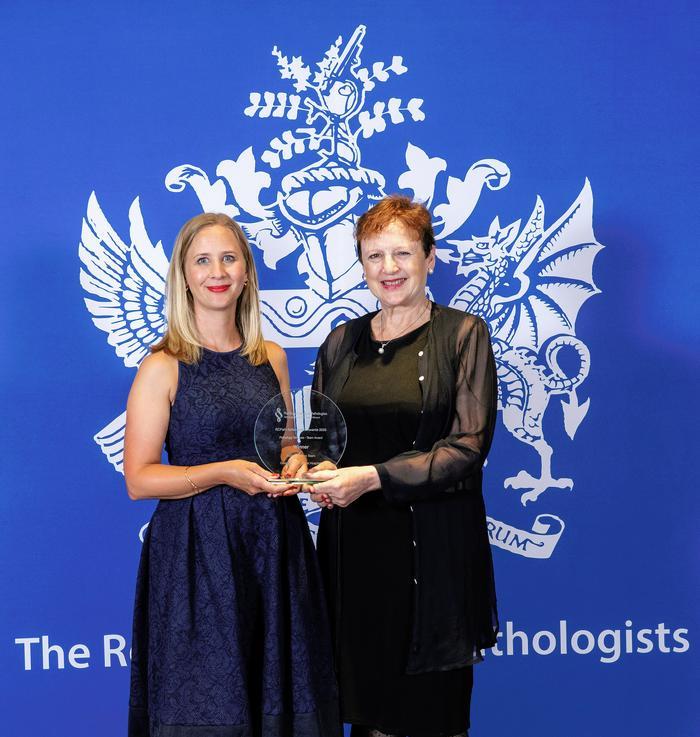
In 2024, the Great Ormond Street Hospital metagenomics team became the first and only nationally United Kingdom Accreditation Service (UKAS) accredited service using metagenomics to diagnose infection.
The service has led to pioneering diagnostic discoveries including a novel astrovirus causing encephalitis, and the cause of an international outbreak of paediatric hepatitis in 2022, which resulted in international press coverage.
Sterile site metagenomics is a cutting-edge method of pathogen diagnostics; over the last 10 years, the team has taken this from the research environment and translated it into routine clinical care, making it available across the NHS. Performing more than 600 tests, a recent audit of practice showed a 74% change in patient management.
The team continually strives to improve their service and works collaboratively across NHS organisations to improve access to this pioneering diagnostic technology. They are helping to deliver the NHS Genomics Network of Excellence (GNoE) Severe Presentation of Infectious Disease (SPID) aim to evaluate and implement metagenomic analysis. They are the only paediatric centre in a nationally funded project to roll out rapid respiratory metagenomics in critical care and are evaluating faster methods for metagenomics in patients with encephalitis, uveitis and hepatitis.
RCPath Achievement Awards – Sustainability awards
Bon Secours Hospital Tralee laboratory team
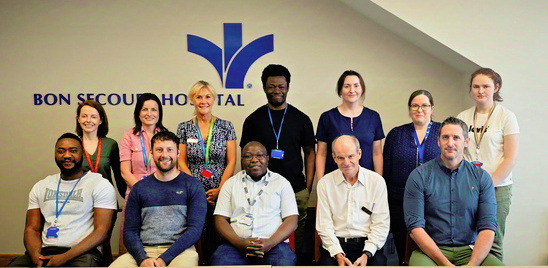
Bon Secours Hospital Tralee laboratory team.
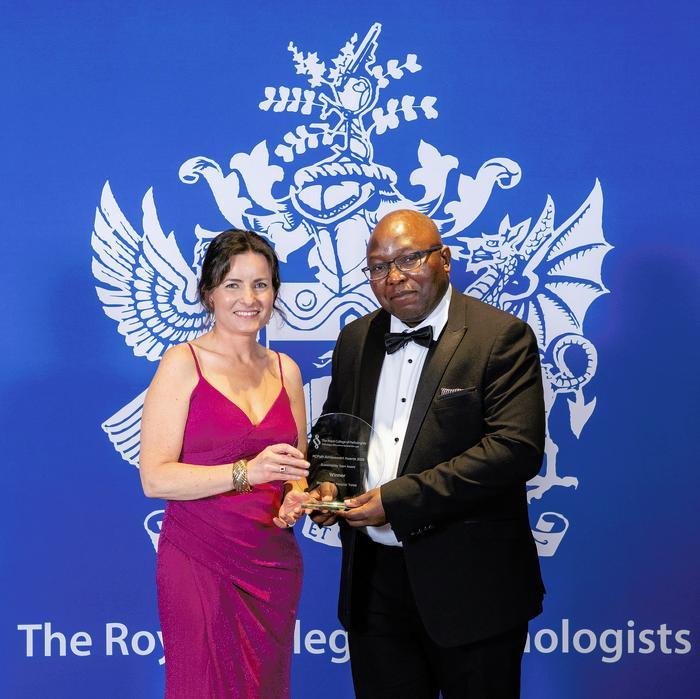
The Bon Secours Hospital Tralee laboratory team based in Tralee, County Kerry, Ireland, set out to reduce chemical consumption, clinical waste and electrical consumption.
The laboratory processes approximately 20,000 cases per year, using 2 tissue processors. Previously, all reagents used in the tissue processors were disposed of weekly. By implementing the reagent manager system, only the first station was changed weekly. All other reagents were moved on by 1 container, enabling the recycling of reagents. Validation was completed by running duplicate samples on the tissue processor with the reagent manager system in use, and 1 using the old system. Stained slides were assessed using the UKNEQAS staining criteria.
Following a period of monitoring, the team carried out education on waste segregation. Furthermore, the ‘on’ time of 2 embedding centres was optimised.
The project led to a financial saving of nearly €37,000 per year for the laboratory. There were also huge environmental benefits, as well as health and safety improvements. The project has the potential to be scaled up, yielding proportionally greater savings in a larger laboratory.
Highly commended
-
The British Association of Gynaecological Pathology (BAGP) Council
-
The Clinical Transfusion Team at Guys and St Thomas NHS Foundation Trust
-
The National Pathology Imaging Co-operative (NPIC)
-
Oxford Immunology Laboratory
-
The Point of Care Testing Team at North West London Pathology
-
Toxicology Team at the Queen Elizabeth University Hospital
-
North West London Pathology Training Academy Team

